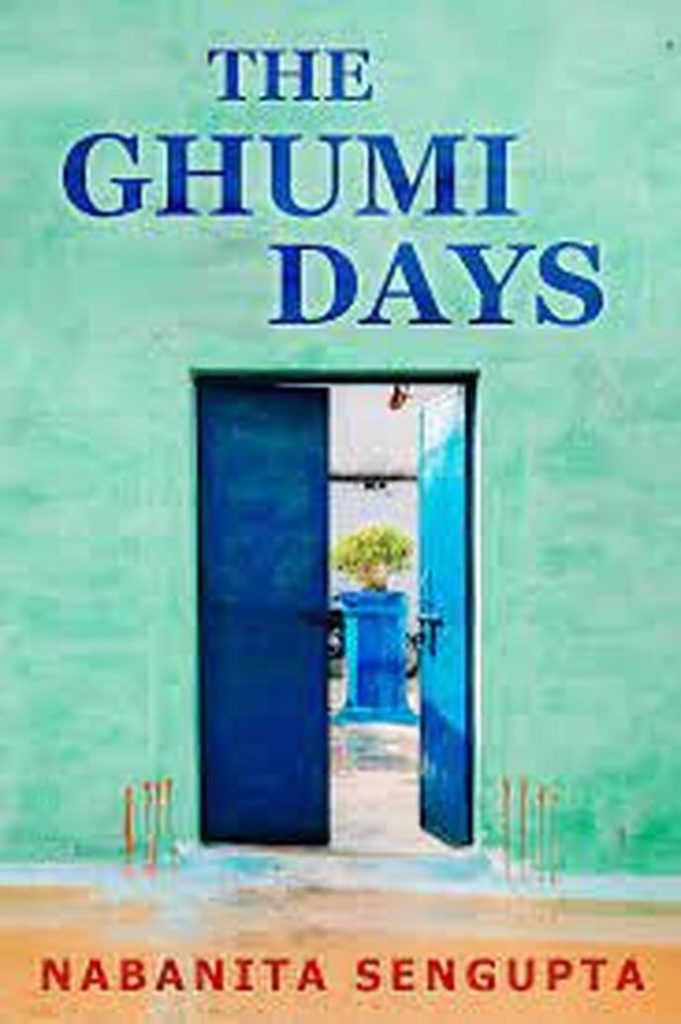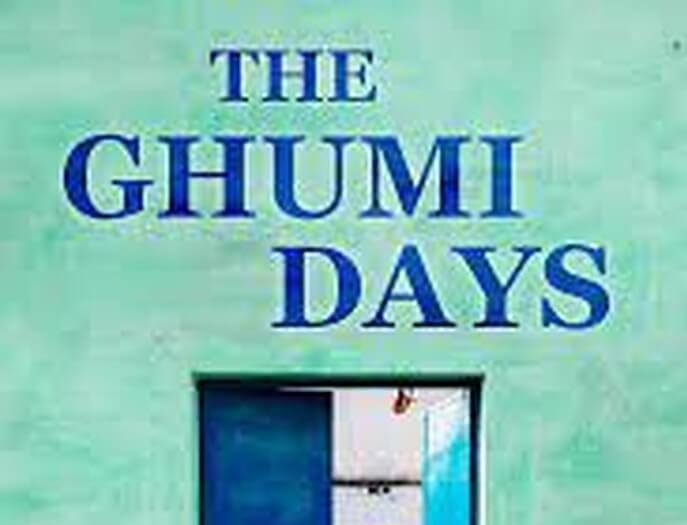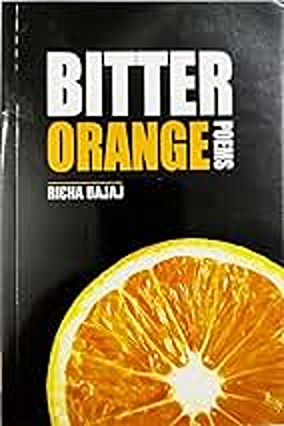Chaitali reviews, The Ghumi Days, a collection of 18 short stories, by Dr. Nabanita Sengupta. An exclusive for Different Truths.

As I was leafing leisurely through The Ghumi Days, a nostalgic collection of short stories penned by Dr. Nabanita Sengupta, the words of George Saunders, the American writer of short stories and novellas flashed through my mind. “When you read a short story, you come out a little more aware and a little more in love with the world around you.”
Indeed, when I finished the last pages of The Ghumi Days, I was totally immersed in love with the sleepy, clustered, unprepossessing town of Ghumi, in the Chota Nagpur plateau, with its characters, bumbling and fumbling their way through day-to-day life. Ghumi does not exist on any map of India, and yet its lanes and by-lanes, the locale appear familiar to us. This indeed is the author’s triumph.
The book, a collection of eighteen well-told short stories, opens with a small story called, The Tower of Babel.
In the preface to the book, the author says: “When you move away from a place, the birthing of fiction begins. The distance, the memories, the perceptions – all blend, and a concoction midway of truth and fiction is formed.That is your own fairy tale.”The book, a collection of eighteen well-told short stories, opens with a small story called, The Tower of Babel. We learn about a small girl called Raya, who happens to be one of the familiar characters in this book.
There are many stories which are told from her perspective. She has relocated “from Calcutta to this obscure township in Jharkhand”with her parents. A place that was “…free from the tensions of urban life.” Wrapped cozily amidst the green surroundings, people who came to Ghumi “from different parts of the country, were tied by a common source of livelihood, the factory.” Their routine life, “unshaken by any happenings more interesting than the Sunday bazaar or a community movie night”, [The New Year Gift] is all at once tender, eerily lovable, and not only grab your interest but also your heart for their simplicity.
This a world faraway from today’s socially nurtured addiction to technology.
The book easily captures our attention for many different reasons. The most important one, in my opinion, is that old-world charm, laidback setting where the stories mature and develop. This a world faraway from today’s socially nurtured addiction to technology. In this world, children retain their sense of amazement and wonder for ‘behrupiyas’ “… who often ventured into Ghumi and bellowed in their fiercest voice, scared the children of that little township.” [The Monster].

A world where children like Raya sat with their “… nose buried in between the pages of some fiction. Enid Blyton ruled her world and her imagination.”[Serpent in Eden].It is a world, where enjoying a cup of tea with some harmless gossip to munch is a ritual, not to be missed. “They would gossip about the latest neighbourhood scandals, home remedies, and even new recipes. It was an idyllic life where even discord did not survive for long.” [A Night too Long]. Sengupta’s world is a world where people are completely involved in each other.
The author weaves wonderful details into the setting and character descriptions.
The author weaves wonderful details into the setting and character descriptions. Ghumi, the town is at the heart of all the stories. The characters we encounter are all caught up in their lives in this town which brings a thematic consistency to her stories. Sengupta is a quiet observer of life with its myriad small occurrences and emerges with an original voice of her own.
Her characters express themselves in simple, uncomplicated lines and what they always have is emotions. She takes an honest look at the inner life and struggles of her characters. There is Sunny in the story, The Other Side of the Curtain,who struggles with his physical inadequacy.“His polio-ridden leg has made him walk extra miles to avoid seeking assistance.”We meet other residents – the cloth-merchant Balwinder Singh, aunty Jaspreet, the furniture maker Mr. Sankar, the fishmonger Kaali, Madam D’Souza – these characters could be living in any part of India, and therefore, represents India in a very subtle form.
Her characters are deeply concerned with establishing a sense of community.
Sengupta’s lens is pan-Indian, rather than only Bengalis. And as the characters talk, we are swept along on their journeys of self-revelation. Her characters are deeply concerned with establishing a sense of community. Most of them earn their livelihood from the factory in Ghumi, and not all of them are admirable. For example, the character of Uncle Milind in the story, Serpent in Eden. Yet, we still care for all of them because they are all like us, coming from middle-class families, a mix of human faults and goodness.
This review will not be complete without mentioning the lyrical quality of Sengupta’s prose. The seemingly effortless dialogue gives a lyrical quality to her prose. The eighteen short stories create a complex but memorably emotional world. With her narrative ability, precise descriptions, Sengupta talks about family relationships, disappointments, love, anger, life in school campuses, moments of both violence and tenderness. Throughout the book, her voice is assured and empathetic.
The book is presently available only in India. A worldwide availability is sincerely recommended.
The Ghumi Days is a true pleasure to read.
The Ghumi Days is a true pleasure to read. Even when you reluctantly turn the last page, you would find yourself recalling the thoughts and the emotions you had entertained when you started the book.
I invite everybody to read The Ghumi Days. I read a few stories each day until I was all caught up and the stories started to take hold on me. Readers will most surely find a great deal to enjoy in these pages.
Cover sourced by the reviewer





 By
By
 By
By
 By
By
 By
By